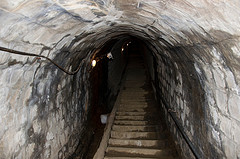
Romania’s Rosia Montana Mining Project: another example of the policy pitfalls of resource extraction
On January 28, a freezing day in Bucharest, hundreds of Romanian citizens protested against a government-approved gold mining project in Rosia Montana by a Canadian corporation, Gabriel Resources Ltd. It was not the first protest against the project: as I mentioned in a previous post, anti-governmental sentiment has swept the country since mid-January, and the row over Rosia Montana is a key issue. But despite the protesters’ warnings about the environmental, cultural and economic consequences of the project, Romanian authorities seem disinterested. The project’s opponents criticise the use of cyanide (a common technique used to leach gold from extracted material) which would have a devastating and irreversible impact on the region’s biodiversity. Moreover, the mine would lead to the destruction of over …

Remembering Manuel Fraga – politician and guardian of Spanish conservatism
Manuel Fraga Iribarne, who died on the 15th January (at 89), was a lion of modern Spanish conservatism. Born in 1922 in a small Galician town, he was the son of Spanish immigrants who had spent a year working in Cuba. His mother was a French-Basque teacher. In his early academic career he excelled in degrees in law, politics and economics and passed several of the most competitive exams for recruitment in Franco’s Public Administration before becoming a professor of state theory, a lawyer to the Congress and a diplomat. Highly cultivated, prolific and hardworking, he wrote approximately 80 books on history, politics and law. His encyclopaedic essay ‘La crisis del Estado’ (The State’s Crisis), influenced by Carl Schmitt, is arguably …
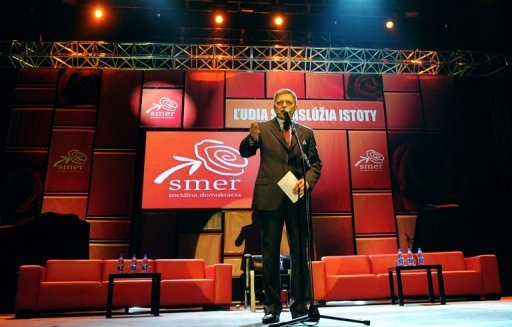
Slovakia’s election: another majority government from a proportional electoral system
On Saturday 10th March 2012, Slovakia joined the small but growing club of European countries that elected a majority government despite using a proportional representation system. The centre-left Smer party, led by Robert Fico, won 86 out of 150 seats with 44.9% of the vote. Although it was predicted that Smer would win the election, even Fico himself was surprised by the scale of the result. Since the eurozone crisis started to bite, strong anti-incumbency sentiments have regularly produced extreme results. In Hungary, Fidesz won more than a two-thirds majority in parliament in 2010 with 68% of the popular vote. In Scotland, a proportional electoral system unexpectedly produced a majority government in 2011, when the Scottish Nationalist Party (SNP) won 69 out of 129 seats with 45% of …
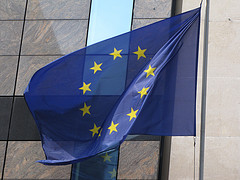
Low Key EU Summit: Tired Europe mired in crisis and recession or rebounding?
As 25 of the EU’s 27 member states signed the fiscal treaty designed to put a line under the euro crisis on a grey and misty Brussels morning, the mood at the summit was low key and low energy (the UK and the Czech Republic the two non-signatories). Politicians and officials alike did their best to spin that the crisis was past. French President Nicolas Sarkozy at his press conference, insisted ‘ we are turning the page on the financial crisis’ and that Europe had shown how fast it can move, bringing the treaty in just three months after the idea was launched at the December summit 3 months before. But Sarkozy himself looked tired and pale, rather than his …
The risks of the current approach to Greece and the Euro-crisis
Last week, I debated how much more the Greek nation can take given the enormous internal and external pressures on families, society and the nation. When discussing this with my friend and colleague Pavlos Efthymiou, we realised that some important points were missing and have rewritten the article together (also published on ELIAMEP). Mainstream International Relations (IR) thinking (see Realism, Liberalism) holds that the national interest drives states to act the way they do on the international stage. This post-hoc rationalising to explain policy outcomes works successfully enough to be employed by the majority of policy-makers, academics, and analysts to inform their audiences. However, what they are often missing is how such an interest comes about and what it is …
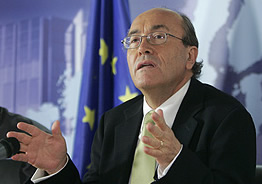
Towards a Two Speed Europe: Is the Inevitable Preferable?
Last week the Centre for International Studies held an excellent discussion panel (shortly to be made into a podcast) with Jean-Claude Piris (author and former Director General of the Legal Service of the Council Secretariat), discussing his new book, Towards a Two Speed Europe. Jean-Claude Piris, who has worked for many years in the highest echelons of European law-making and treaty formulation, is far more qualified than your blogger to evaluate the various implications of a formalisation of the currently observable divergence in paths of the European centre and its periphery. I shall not, therefore, attempt to evaluate his arguments from the point either of a lawyer or a European policymaker. I’m neither. Rather, I write merely as a citizen of …
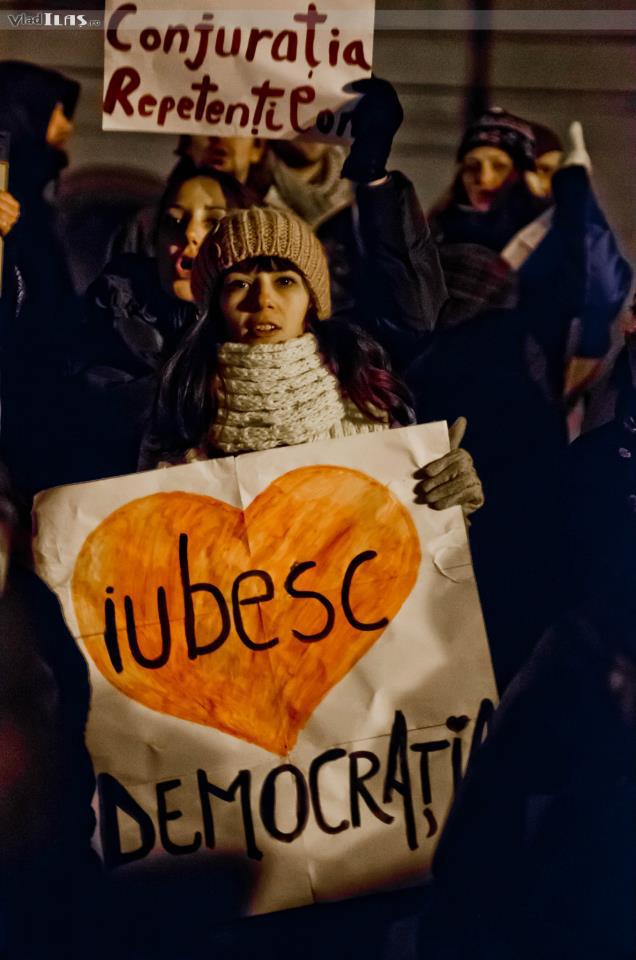
Cyber-statements: Internet protesting and the 2012 Romanian protests
Internet protesting is a concept that has yet to be coined and theoretically conceptualized, even though it exists in practice and has been extensively used during the 2011-2 mass protests that have swept a number of countries in the Arab world in particular and, more recently, Eastern and Southern Europe as well. I will start by, first, providing a starting definition for “internet protesting.” Then, I will apply it to the context of the January-February 2012 Romanian protests. For the purposes of this article, I will argue that “internet protesting” refers to the use of social media, in particular social media websites, such as Facebook and Twitter, to organize and continuously fuel a public manifestation as well as provide a …
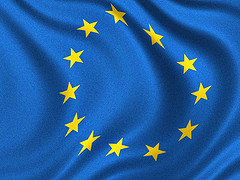
Voters’ Block: Will EU governments hold referendums on a new treaty?
As the European Union lurches from crisis to crisis, the chances of getting a new EU treaty are on the rise. Such a new treaty might be the ‘Treaty on Stability, Coordination and Governance in the Economic and Monetary Union’, which is due to be signed in March by all EU members apart from the Czech Republic and the UK. Or, if the worst fears of the Eurozone countries are realised and Greece defaults, a new treaty will be necessary to clean up the ensuing mess. Although most attention tends to focus on the ins-and-outs of treaty negotiations, once a treaty has been signed it still has to be ratified by each country. And the ratification process has rarely gone …









